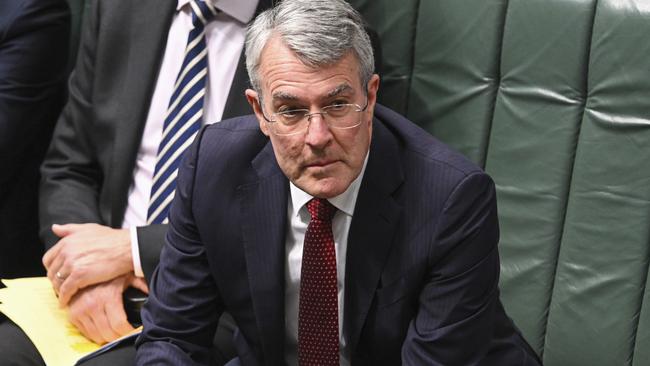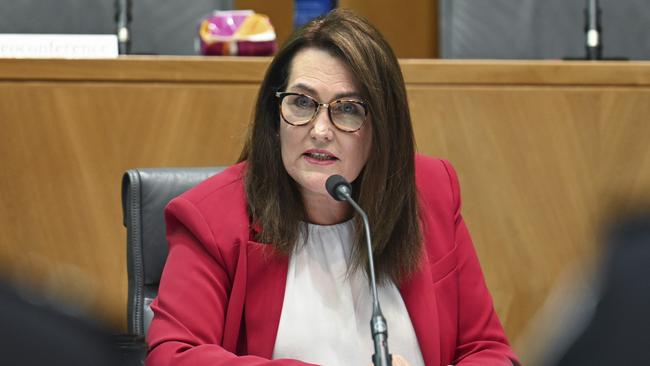
Let’s return to one of the nation’s most esteemed law enforcement agencies, the Australian Criminal Intelligence Commission, where an internal investigation continues to examine accusations of misconduct involving two of its most two senior employees.
Margin Call reported earlier this month that ACIC’s operations manager in Sydney, Greg Schott, had been suspended with pay over allegations of an undeclared conflict of interest, along with discrepancies involving his corporate travel and spending. A senior legal officer at the ACIC has also been suspended, and it would appear unlikely that either will be returning in good time.
Few agencies are as empowered, or secretive, as ACIC. Its investigations include an ability to hold coercive hearings using an in-house judge and a counsel assisting, just some of the standing royal commission powers bestowed upon it under Section 21A of its governing act.
A compulsion to produce documents is another weapon. One concern being raised is that Schott and others at ACIC were allegedly using this power to exert pressure on the nation’s banking institutions to hand over client information. Whether this methodology is even legal remains in question.

Margin Call has confirmed that ACIC served Section 21A notices on major Australian banks, compelling them to give up the names of clients who hold safety deposit boxes. The rationale was that criminals use safety deposit boxes to stow illicit funds, or drugs, or unexplained wealth, and if the commission knew the identities of account holders it could run the names through its formidable database to establish trends of criminality.
The banks complied without challenging these notices, meaning ordinary citizens had their names supplied and, if they were of sufficient interest, the contents of their accounts stood a risk of being pursued for investigation without reasonable suspicion or a warrant. See the problem?
It’s been said that ACIC sought numerous opinions from its judicial officers before embarking upon this technique, and while those approvals were granted, there remains a residual concern that the method – not unlike a fishing expedition, a dragnet, akin to the NSA’s warrantless surveillance – could constitute an egregious overstepping of its power.
Margin Call inquired as to the opinion of Attorney-General Mark Dreyfus KC on this privacy incursion but his office declined to comment, as did the ACIC.
It’s notable, too, that the agency still doesn’t have a CEO running the joint since the departure of Mike Phelan in November. A field of candidates was assessed but it looks like Dreyfus has put the position back online, with a fresh round of applications due by October 1.
PwC’s gone bush
Boston Consulting Group and McKinsey made a right fuss about appearing before that Senate inquiry hauling in consultants for examination, or subjecting them to what the savage Megan Lathamonce likened to “pulling wings off butterflies”.
Boston Consulting and McKinsey were a flat no to appearing earlier this year but experienced a softening of the heart last month and are now listed on a draft schedule of witnesses to be summoned next week. Yet, incredibly, still no sign of a single representative from PwC Australia, the firm whose unscrupulous conduct triggered this mess and the inquiry in the first place.
Margin Call hears its representatives haven’t actually been called yet, if you can believe that, and maybe it has something to do with that ongoing Australian Federal Police investigation into the firm’s leaking of confidential tax information. Or perhaps the committee is waiting for the release of Ziggy Switkowski’s independent review into PwC’s culture, governance and accountability? It’s due out later this month, with another hearing being considered to drag in

the PwC brass for the occasion. Sounds like that might take place in October.
Perfect timing, of course, given the rare availability of global chairman Bob Moritz, who’s due in Sydney next month, although his cavalcade of local bosses aren’t to be sniffed at, including CEO Kevin Burrowes and immediate past CEOs, including Kristin Stubbins (in her acting position), the infamous Tom Seymour, and the elusive Luke Sayers, whom committee members are particularly eager to meet.
Meanwhile, Burrowes celebrates three months in the job next week and still hasn’t given a media interview, nor done the rounds of Canberra.
It would seem a certainty that the committee will hear from PwC eventually, with Senator Deb O’Neill telling Margin Call there were “many questions which PwC and Mr Sayers are yet to answer”. Even amid the spectre of an AFP investigation, O’Neill said she would “continue working with my colleagues to gather evidence and, if appropriate, to call both PwC and Mr Luke Sayers before the committee”.
If appropriate! The only reason this inquiry exists is to hold PwC to the fire, no?
The counterfactual, of course, is that PwC has been cunningly delaying an appearance altogether by dragging out the release of the Switkowski report, which it’s been sitting on for a month, while using the AFP investigation as a cover.
Which is funny, because there were no issues when the NSW parliament conducted its own inquiry into the use of consultants. The AFP was already a month into its probe when Stubbins turned up to Macquarie Street and gave evidence without incident.



